The Economics and Statistics Division maintains archives of previous publications for accountability purposes, but makes no updates to keep these documents current with the latest data revisions from Statistics Canada. As a result, information in older documents may not be accurate. Please exercise caution when referring to older documents. For the latest information and historical data, please contact the individual listed to the right.
<--- Return to Archive
For additional information relating to this article, please contact:
November 05, 2024BUILDING CONSTRUCTION PRICE INDEX, Q3 2024 Halifax's residential building construction prices increased by 4.5% from Q3 2023 to Q3 2024. Across Canada, residential building construction costs were up by 4.1%. Among the 15 major urban centres reported, Victoria, Calgary and Regina reported the fastest rise in building construction prices. Ottawa reported the slowest rise in residential building construction costs.
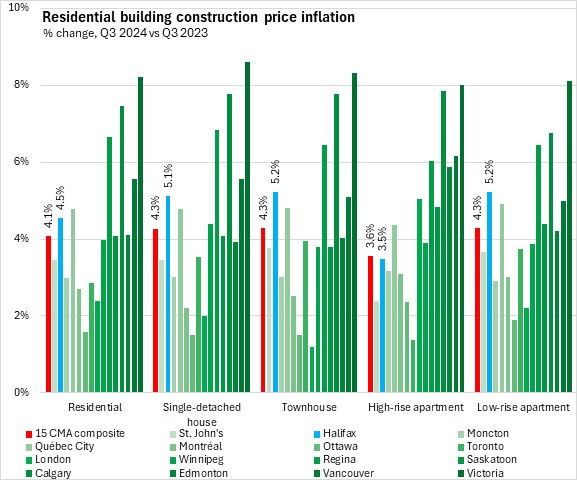
In the last quarter of data, Halifax's year-over-year construction costs growth continued to slow for all categories of residential structure. Building construction costs growth was lower for high-rise apartment buildings (+3.5%) and higher for townhouses (+5.2%), low-rise apartment buildings (+5.2%) and single-detached dwellings (+5.1%).
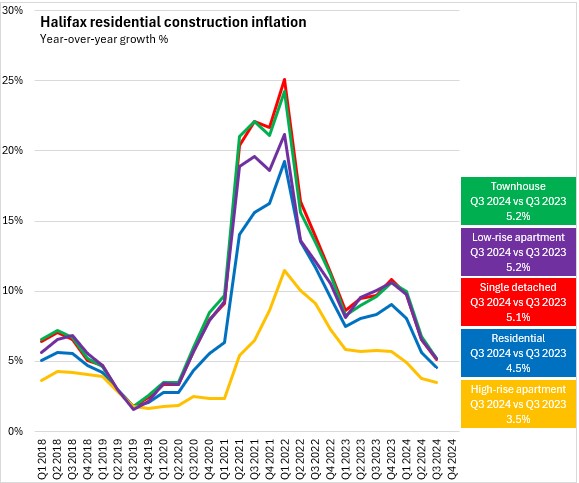
Non-residential building cost inflation is generally slower than residential building cost inflation. Overall non-residential building costs were up 2.1% in Halifax from Q3 2023 to Q3 2024, this was the slowest growth in non-residential construction costs among major cities. Across the 15 major Census Metropolitan Areas, overall non-residential building construction costs grew 3.9%. Victoria and London reported the fastest year-over-year growth in non-residential building construction costs.
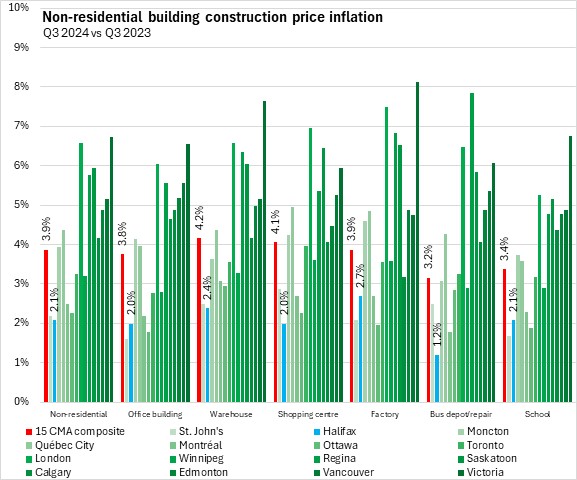
The pace of building cost inflation was slower for schools (+2.1%), but slightly faster for factories (+2.7%), warehouses (+2.4%)and office buildings (+2.0%). The pace of building cost growth was unchanged for shopping centres (+2.0%).
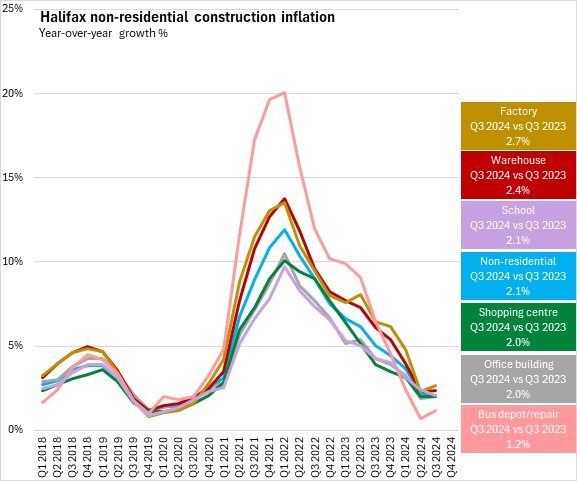
Among components of building costs, residential construction inflation is up most for: concrete, wood/plastics/composites and earthworks. Only finishes reported lower costs (exterior improvements and demolitions reported no year-over-year change in costs)
Non-residential building construction costs grew most rapidly among general requirements. There were no reductions in any non-residential building cost components, though conveying equipment reported no cost growth.
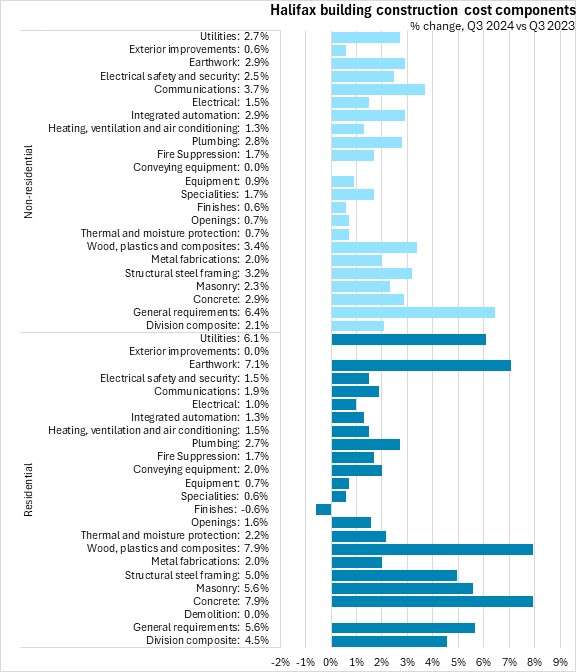
Statistics Canada Notes on the Building Construction Price Index: The building construction price indexes are quarterly series that measure the change over time in the prices that contractors charge to construct a range of commercial, institutional, industrial and residential buildings in 15 census metropolitan areas: St. John's, Halifax, Moncton, Québec City, Montréal, Ottawa–Gatineau (Ontario part), Toronto, London, Winnipeg, Regina, Saskatoon, Calgary, Edmonton, Vancouver and Victoria.
These buildings include six non-residential structures: an office building, a warehouse, a shopping centre, a factory, a school, and a bus depot with maintenance and repair facilities. In addition, indexes are produced for five residential structures: a bungalow, a two-storey house, a townhouse, a high-rise apartment building (five storeys or more) and a low-rise apartment building (fewer than five storeys).
The contractor's price reflects the value of all materials, labour, equipment, overhead and profit to construct a new building. It excludes value-added taxes and any costs for land, land assembly, building design, land development and real estate fees.
With each release, data for the previous quarter may have been revised. The index is not seasonally adjusted.
Source: Statistics Canada. Table 18-10-0289-01 Building construction price indexes, by type of building and division
<--- Return to Archive